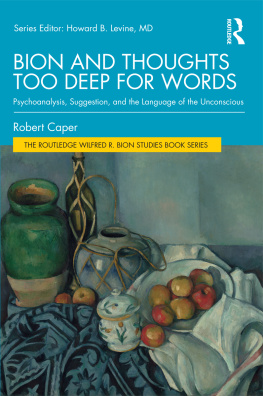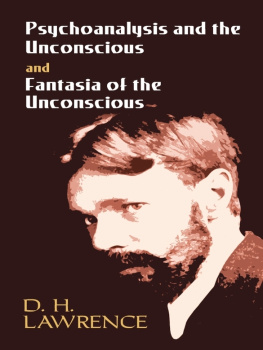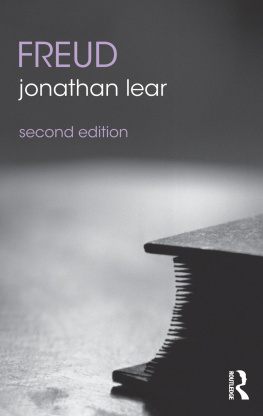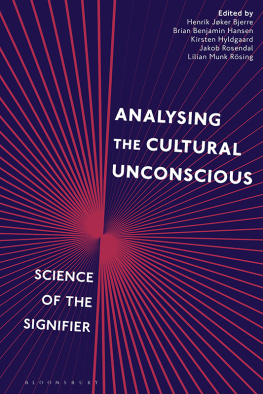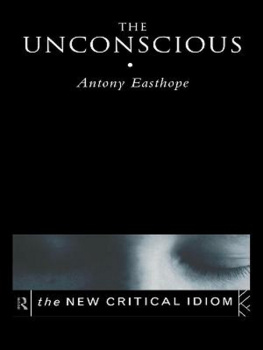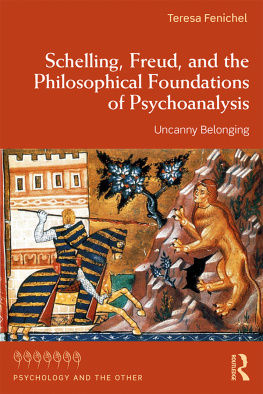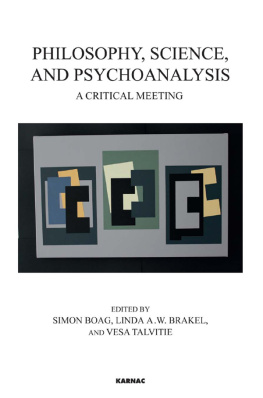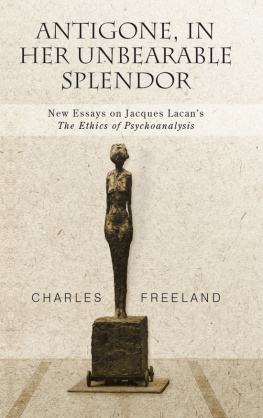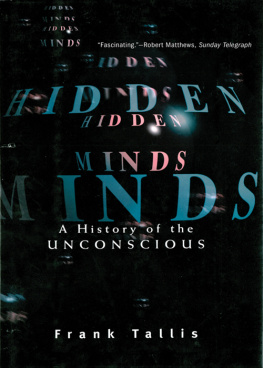This book is a thoroughly interdisciplinary project involving psychoanalytic theory and philosophyspecifically the philosophy of mind, action, science, and metaphysics. In each chapter, I describe a particular problem that has long been of interest to philosophers and psychoanalysts (theorists and practitioners). My initial aim is to solve the puzzles presentedall to the good if I can do so in novel ways. However, the book has two other aims as well. First, to demonstrate that by using concepts and tools both from philosophy and psychoanalysis the problems themselves can be more deeply examined and thereby appreciated. Second, to establish that these interdisciplinary investigations provide the exciting potential to enhance aspects of theory in both disciplines. Finally, there is a matter that is not an aim of the book so much as a hope: namely, that others will find this approach sufficiently interesting that they will develop specific criteria for identifying future topics that would benefit from a psychophilosophical analysis.
Acknowledgments
I thank those at Oxford (UK) University Press, particularly my editors, Martin Baum, for allowing this project to take flight at all, and Charlotte Green, for helping the book take shape at each stage. For providing a forum for discussing these ideas, I thank Randolph M. Nesse and the Wednesday Research Lab Group at the University of Michigan. For reviewing and commenting on earlier drafts of various chapters, I thank Allan Gibbard, Jim Joyce, Daniel Moerman, Jack Novick, Peter Rudnytsky, and Timothy Williamson. Then there are two others who, while they each also reviewed and commented on an early version of a chapter, did much more both emotionally and intellectually. Therefore,
I express my gratitude to David Velleman, and especially to my husband (best friend and first critic), Arthur Brakel.
Introduction
Unconscious Knowing and Other Essays in Psycho-Philosophical Analysis, although in no way a sequel to Philosophy, Psychoanalysis, and the A-Rational Mind (Oxford, 2009), presents further investigations at the intersection(s) of analytic philosophy and psychoanalytic theory. In that earlier volume I held that psychoanalysis, despite its elegant theory, would benefit from philosophical sharpening of many of its concepts; and that the philosophy of mind could and should expand its domain of interest to include the unconscious and a-rational mind. In the current work I take a further step, suggesting that there are important topics that cannot be well understood unless viewed from the interdisciplinary perspective of psychoanalytic theory and particular branches of philosophy (mind, action, epistemology, metaphysics, science, etc.). Moreover, there are longstanding puzzles in both fields that will more readily reveal solutions if tools from both disciplines are employed.
The current collection is more focused than my earlier book as well as more diverse. Whereas Philosophy, Psychoanalysis, and the A-Rational Mind was anchored in addressing problems directly related to the general psychoanalytic theory of mind, and sought to provide a-rational thought with a philosophical grounding, Unconscious Knowing and Other Essays in Psycho-Philosophical Analysis considers four distinct areas in depth, united only by their being potentially of interest both to philosophers of various types and psychoanalytic theorists and clinicians. I say potentially because academics in related disciplines are increasingly losing the will, and with that the ability, to communicate about matters of mutual and vital concern. For example, philosophers and psychoanalysts have important things to say about mind, concept, category, unconscious, non-conscious, rational, irrational, belief, knowledge, phantasy, self, and agent; yet the psychoanalytic and philosophical literatures bearing on these issues are very separate, save for superficial, or even worse, tendentious cross-referencing. Ideally, this volume will play a part toward reversing that trend by marshalling concepts, contents, and forms drawn both from academic philosophy and psychoanalysis (clinical and theoretical) in addressing the four topics.
Following this Introduction, Chapter account, which shifts knowledge back to the foundational center. Much space in the chapter is devoted to providing support for this radical knowledge-centered view, both from clinical psychoanalytic data, and research findings on unconscious processes, as well as from other research cognate to psychoanalytic presuppositions. I use a variety of comparisons between belief and knowledge, both conscious and unconscious, to make the case.
Chapter presents a discovery. When philosophers deal with the concept of vagueness (which is itself a vague concept), they do so with much precision and rationality. And yet, often emerging from work on this topic are very interesting philosophical accounts, many of which bear a surprising resemblance to the contentful notions held by all manner of primary process a-rational thinkers. Once the power and scope of a-rationality is seen in this unusual context, promising implications for greater understanding of the deep nature of our cognitive system(s) follow, as do intriguing ontological speculations regarding the constitution of the (our?) world. This chapter provides much background both about a-rationality and vagueness, and it highlights their similarity.
Agency is the main issue addressed in Chapter characterized by behaviors that can answer why questions of both a psychological and biological sort.
Chapter is titled The placebo effect: Psychoanalytic theory can help explain the phenomenon. This chapter is perhaps less complicated than the others in its structure. I review and describe the placebo effect and outline some of the mechanisms, known and speculated, contributing to its cause. Further, I argue that underlying the placebo effect are two processes very much tied to psychoanalysis: positive transference and positive conditioning. The former is a psychoanalytic concept. The latter owes its connection to psychoanalysis to the a-rational primary process operations that are essential to aspects of classical conditioning including, most importantly, the generalizations necessary to produce conditioned stimuli and conditioned responses. Once this connection is demonstrated, the chapter's main assertion can be made clear. The roles of conditioning and positive transference are central to the placebo effect, and as each of these processes is constituted by psychoanalytic concepts, psychoanalytic concepts can indeed help explain the placebo effect.


